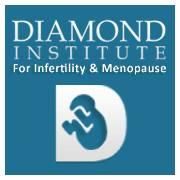What to Know About the Egg Freezing Procedure

Whether they’re launching their career, taking time to enjoy their lives, or they’re just not simply ready, many women delay having children until their mid-30s or older. With recent advancements in the medical field, women have more control in choosing when to become pregnant. One option they can use is egg freezing. Below is a brief guide to this method and how the process works.
A Guide to the Egg Freezing Procedure
How Does Egg Freezing Work?
First, the doctor will check your egg reserve to see how many healthy eggs you have. This usually involves an ultrasound and a blood test. These details, combined with your medical history and age, will determine how successful the process will be, so you can decide whether to go through with the procedure.
Next, you’ll need to inject hormones at home to stimulate your ovaries, so that multiple eggs will be produced in one menstrual cycle. You may have side effects like nausea, cramping, and headaches. Along with at-home injections, you’ll need to go back to the doctor for bloodwork and ultrasounds. You’ll then take a special injection that prepares the eggs for extraction and go through the egg retrieval procedure. The entire process takes less than two weeks to complete, and eggs can be stored for up to 10 years.
Who Are the Ideal Candidates to Freeze Their Eggs?
 Egg freezing is ideal for women in their late 20s through their early 30s, but age isn’t the only factor that guarantees success. It also depends on a woman’s overall reserve testing, medical history, and health. If you’ve been diagnosed with certain diseases like cancer, egg freezing may be an ideal option before you go through chemotherapy, which is toxic to ovaries and may cause premature menopause.
Egg freezing is ideal for women in their late 20s through their early 30s, but age isn’t the only factor that guarantees success. It also depends on a woman’s overall reserve testing, medical history, and health. If you’ve been diagnosed with certain diseases like cancer, egg freezing may be an ideal option before you go through chemotherapy, which is toxic to ovaries and may cause premature menopause.
How Does the Conception Process Work?
When it’s time to use the frozen eggs, they’ll be thawed and fertilized with sperm in a lab. Then, the embryo will be implanted in the uterus. The chances of getting pregnant are between 30 and 60%, depending on how old you were during the egg freezing process. The older you are when you freeze eggs, the lower the chances of conception are.
If you’re thinking about freezing your eggs to have a baby in the future, there are many factors that can affect the process. Doctors Matan Yemini and Ndidiamaka Onwubalili at the Diamond Institute for Infertility & Menopause in Millburn, NJ, will walk you through the procedure and help you figure out if egg freezing is right for you. For the past 40 years, they have provided compassionate care and treatment plans for patients. They also offer artificial insemination, IVF procedures, and gestational surrogacy. To learn more about egg freezing, call (973) 761-5600 or visit them online.
About the Business
Have a question? Ask the experts!
Send your question

